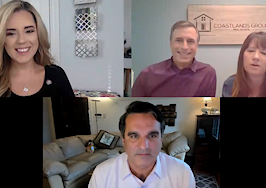As the real estate industry begins to run out of superlatives for the hot housing market, potential pitfalls lurk, including rapid price appreciation and low inventory with homes flying off the market at a record pace, RE/MAX Chief Financial Officer Karri Callahan said during a virtual investment conference Tuesday hosted by Stephens, the private investment banking company.
“We’re definitely watching not only the pace of price appreciation — how quickly it’s happening — but the magnitude and thinking about what is the overall sustainability,” Callahan told John Campbell, an analyst at Stephens, during the virtual event.
Callahan’s appearance coincided with the release of RE/MAX’s monthly housing report, which revealed that homes sat on the market for an average of 38 days, a record low since RE/MAX began publishing the report.
Home sales were up 20.8 percent year over year in October and the median sales price hit $295,000, up 15.4 percent year over year, according to the report.
With the housing market ablaze, RE/MAX is taking the time to invest in its business — through tech acquisitions, product launches and diverse revenue streams — in preparation for an inevitable market shift.
“It seems unlikely that in the near term we’re going to have a buyer’s market but at some point in time we think it will happen,” Callahan said. “That’s why we’re really focused on productivity tools for our agents, how we can help them navigate any kind of environment.”
While RE/MAX tracks the level inventory and pace of price appreciation to look for potential market shifts, one thing that isn’t likely to hurt the hot market immediately is the presidential election.
Both the Trump and Biden administrations have been constructed on housing, Callahan said, and RE/MAX is monitoring how it could impact both the brokerages and mortgage side of the business.
“We’re continuing to monitor it both from the real estate side as well as the mortgage side,” Callahan said. “We’ve been in business almost 50 years and we’ve successfully navigated any kind of administration and both administrations are constructive on housing which is a positive.”
“Because both administrations are constructive on housing, a lot of tailwinds, a lot of support right now, we’re just excited for what that means for our business.”
Housing and those tailwinds could ultimately be what powers the country out of the COVID-19-related economic slump, which is a complete dichotomy from the 2008 Great Recession, where housing pulled the country into the recession, Callahan said.










